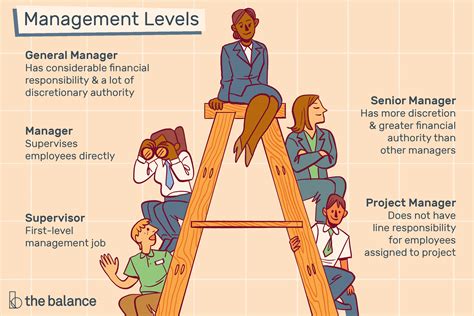Project Management Roles: 7 Levels Explained

Project management is a crucial aspect of any organization. It involves planning, organizing, and overseeing projects to ensure they are completed successfully. Within the field of project management, there are various roles and levels of responsibility. In this article, we will explore the seven levels of project management roles and their respective responsibilities and skills.
1. Project Coordinator
A project coordinator is typically an entry-level position in project management. They assist the project manager in various administrative tasks, such as scheduling meetings, preparing project documentation, and tracking project progress. Strong organizational and communication skills are essential for this role.
2. Project Scheduler
A project scheduler is responsible for creating and maintaining project schedules. They work closely with the project manager to define project milestones, establish deadlines, and allocate resources. Attention to detail and proficiency in project management software are important skills for a project scheduler.
3. Project Analyst
A project analyst conducts research and analysis to support project decision-making. They gather data, identify trends, and provide insights to help project managers make informed decisions. Strong analytical and problem-solving skills are vital for this role.
4. Project Manager
The project manager is responsible for overall project planning, execution, and completion. They coordinate resources, manage stakeholders, and ensure project goals are met within the specified timeline and budget. Leadership, communication, and negotiation skills are key attributes of a successful project manager.
5. Program Manager
A program manager oversees multiple related projects and ensures their alignment with organizational goals. They coordinate resources, manage risks, and provide guidance to project managers. Strategic thinking and the ability to manage complex projects are essential for this role.
6. Portfolio Manager
A portfolio manager is responsible for managing a portfolio of projects within an organization. They prioritize projects based on strategic objectives, allocate resources, and ensure projects align with the organization’s overall strategy. Strong decision-making and financial management skills are crucial for this role.
7. Chief Project Officer
The chief project officer (CPO) is the highest level of project management within an organization. They oversee all project-related activities, provide strategic direction, and ensure projects are aligned with the organization’s vision. The CPO also establishes project management standards and best practices. Exceptional leadership and strategic planning skills are necessary for this role.
Conclusion
Project management roles span a wide range of responsibilities and skills. From entry-level coordinators to top-level executives, each role plays a vital part in the successful completion of projects. As organizations continue to undertake complex and strategic projects, the demand for skilled project managers at all levels will continue to grow.
Frequently Asked Questions
1. What are the essential skills for a project manager?
2. What is the difference between a project coordinator and a project scheduler?
3. How does a program manager differ from a project manager?
4. What is the role of a chief project officer in an organization?
5. What are the career growth opportunities in project management?
